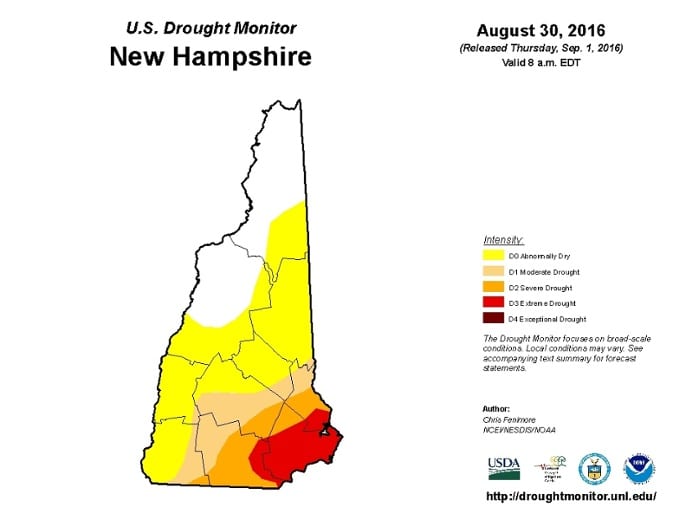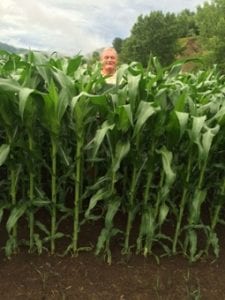
It is safe to say that the summer of 2016 has been a tough summer for farmers throughout New Hampshire. In a Concord Monitor article posted on August 30, 2016, New Hampshire’s agriculture commissioner Lorraine Merrill states that “19 of the state’s 120 dairy farms have closed this year” due to low milk prices and the ongoing drought. And Bill Yeaton, of Yeaton Farm in Epsom, guesses that “7 or 8 more dairies in New Hampshire would close by year’s end.”
As you can see from the picture below extreme drought conditions persist in the southern portion of the state, while abnormally dry conditions continue through the central and northeast portions of the state. According to the NOAA Climate Prediction Center this drought is expected to continue until the end of November. With no end in sight farmers are looking for options.
Looking for ways to combat these struggles and to help farms stay afloat, New Hampshire farms are hoping for funding from the state’s milk farmers’ emergency relief fund. Thanks to Gov. Maggie Hassan farmers can now apply for emergency relief loans from the US Farm Service Agency. 
While these may be immediate fixes, what can be done to help solve these problems in the future? That is where biosolids come in!
For years farmers have reported that soils that use biosolids, as a soil amendment, appear to be more drought resistant than crops that received other soil amendments. Biosolids add organic matter that help absorb and store moisture which in turn improves the soil structure and the soils water holding capacity making it naturally drought resistant.
An example of corn grown in biosolids can be seen on the right. This corn is from a farm in Tunbridge, Vermont and as you can see their soil looks healthy and their corn looks even better!